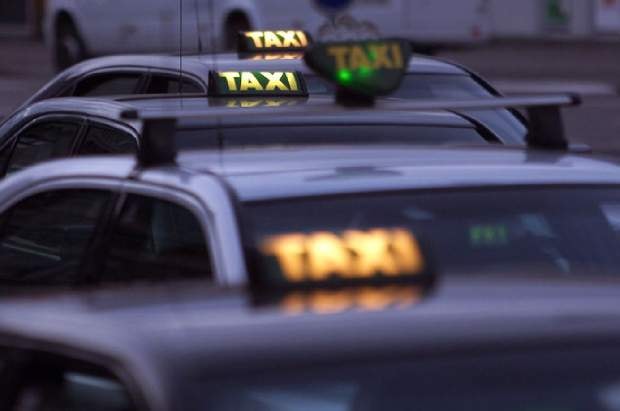Bias is a natural human tendency, but when it affects the behavior of taxi drivers, it can lead to discrimination and unfair treatment of passengers. Overcoming biases is crucial for creating a more inclusive and respectful transportation experience for all. In this article, we will explore various strategies that Tunbridge Wells Taxi drivers can adopt to address and overcome their biases.
Understanding Bias in Taxi Drivers
Bias refers to the tendency of individuals to favor or discriminate against others based on certain characteristics such as race, gender, or appearance. It can manifest in various forms, including implicit biases that people may not be consciously aware of.
How does bias impact taxi drivers?
Biases can influence the decisions and behaviors of Tunbridge Wells Taxi drivers in multiple ways. Drivers may subconsciously choose certain passengers over others, treating them differently based on their racial or ethnic backgrounds, socio-economic status, or personal appearance. Such behaviors perpetuate inequalities and contribute to a negative experience for passengers.
The Consequences of Biased Behavior
Negative impact on passengers
When taxi drivers act on their biases, it creates an environment of unfairness and discrimination. Passengers who are subjected to biased treatment may feel marginalized, disrespected, or even unsafe during their journey. This can lead to a deterioration of trust in the taxi industry and a decrease in ridership.
Legal and ethical implications
Discrimination based on certain protected characteristics like race or gender is illegal in many jurisdictions. Tunbridge Wells Airport Transfers drivers who engage in biased behavior may face legal consequences, including fines and license suspension. Furthermore, displaying discriminatory attitudes contradicts ethical principles of fairness and equality.
Addressing Bias: Awareness and Education
Recognizing personal biases
The first step towards overcoming biases is acknowledging their existence. Taxi drivers should take the time to reflect on their own beliefs and attitudes and examine any biases they may hold. By cultivating self-awareness, they can start to challenge and change their prejudiced perspectives.
Cultural sensitivity training
To foster a more inclusive environment, Tunbridge Wells Airport Transfers companies can provide cultural sensitivity training to their drivers. These programs offer education on different cultures, traditions, and customs, enabling drivers to better understand and respect the diversity of their passengers.
Encouraging empathy
Empathy plays a crucial role in combating biases. Taxi drivers should be encouraged to put themselves in their passengers’ shoes, imagining the challenges they face and the experiences they might have had. By fostering empathy, drivers can develop a deeper understanding and appreciation for their passengers’ uniqueness.
Encouraging Accountability and Feedback
Establishing feedback mechanisms
Taxi companies should establish clear feedback mechanisms that allow passengers to report any instances of biased treatment. Creating an anonymous reporting system can encourage passengers to share their experiences, ensuring that incidents of bias are addressed promptly and appropriately.
Promoting transparency
Transparency within the Taxi in Tunbridge Wells industry involves openly discussing biases and the measures being taken to address them. Taxi drivers and companies can proactively share information about training programs, diversity initiatives, and steps taken to combat biases. This transparency builds trust and helps create a more accountable and inclusive environment.
Conclusion
Bias in the taxi industry is a significant issue that needs to be addressed to ensure a safe, fair, and enjoyable transportation experience for all passengers. Overcoming biases requires self-awareness, education, technology, community partnerships, and accountability. By actively adopting these strategies, Taxi in Tunbridge Wells drivers can play an essential role in creating a more inclusive and accepting industry, free from discrimination.
FAQs
Can biases be eliminated?
Biases are deeply ingrained in human psychology, but through education and self-reflection, individuals can mitigate the impact of biases and strive to be more objective and open-minded.
Is bias only based on race or gender?
No, bias can be based on various characteristics such as age, disability, religion, appearance, or socio-economic status. Awareness of biases beyond race and gender is critical to creating an inclusive environment.
How can passengers address biased behavior from taxi drivers?
Passengers witnessing biased behavior can take note of the incident, report it to the taxi company with specific details, and consider providing feedback on online platforms to raise awareness and promote change.
Can technology eliminate bias in the taxi industry?
While technology can help reduce bias, it cannot eliminate it. Human understanding, empathy, and continuous efforts are necessary to ensure biases are addressed effectively.
What role can passengers play in combating biases?
Passengers can contribute by treating taxi drivers with respect and kindness, challenging their own biases, reporting incidents of biased behavior, and supporting diversity and inclusion efforts within the taxi industry.

